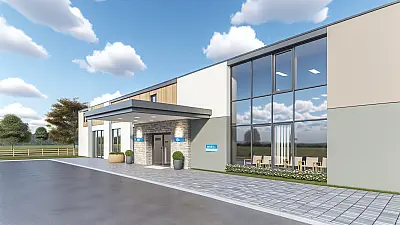EVERETT, PA - Pennknoll Village nursing home has been cited for maintaining an ineffective quality assurance program that failed to correct ongoing deficient practices, according to a January 15, 2025 health inspection.

Quality Oversight System Breakdown
The facility's Quality Assurance and Performance Improvement (QAPI) committee was found to be ineffective in addressing and correcting deficient practices, specifically those related to resolving resident grievances. This represents a fundamental breakdown in the facility's internal monitoring and improvement processes that are designed to ensure quality care.
The QAPI committee serves as a nursing home's primary mechanism for identifying problems, implementing solutions, and monitoring improvements. When this system fails, it creates a cascade effect where deficiencies persist and potentially worsen over time, directly impacting resident care and safety.
Pattern of Unresolved Compliance Issues
Investigation revealed that the facility had previously developed a plan of correction for deficiencies cited during a February 23, 2024 survey, which included a failure to revise or update resident care plans. The correction plan specifically included completing regular audits and reporting audit results to the QAPI committee for review and action.
However, the current inspection findings indicate that despite these corrective measures, similar deficiencies have persisted. This suggests that either the auditing process was inadequate, the QAPI committee failed to properly analyze the audit results, or corrective actions were not effectively implemented.
Care plan updates are crucial for ensuring that residents receive appropriate, individualized care that reflects their current health status, preferences, and needs. When care plans become outdated, residents may receive inappropriate treatments, miss necessary interventions, or experience reduced quality of life.
Medical Implications of Quality System Failures
The breakdown of quality assurance processes creates significant risks for nursing home residents. When facilities cannot effectively identify and correct deficiencies, residents may experience delayed responses to health changes, inappropriate medication management, inadequate infection control measures, or insufficient assistance with daily activities.
Quality assurance programs are specifically designed to be proactive rather than reactive. They should identify potential problems before they impact resident wellbeing and ensure that any deficiencies are quickly and thoroughly addressed. The failure of these systems means that residents may be exposed to preventable risks.
Industry standards require nursing facilities to maintain robust quality assurance programs that regularly monitor all aspects of care, from clinical outcomes to resident satisfaction. These programs must include data collection, analysis, action planning, and follow-up monitoring to ensure improvements are sustained.
Regulatory Requirements and Standards
Federal regulations mandate that nursing homes establish and maintain comprehensive QAPI programs that meet specific criteria. These programs must be data-driven, involve facility leadership and staff at all levels, and focus on systems and processes that directly affect resident outcomes.
The QAPI program should include regular systematic monitoring of care quality, prompt identification of issues, development of corrective action plans with clear timelines, and ongoing evaluation of improvement efforts. When facilities fail to maintain effective quality assurance programs, they risk losing their ability to participate in Medicare and Medicaid programs.
Additional Issues Identified
The inspection also documented ongoing problems with grievance resolution processes, indicating that resident concerns may not be adequately addressed or resolved in a timely manner. This connects directly to the QAPI committee's ineffectiveness, as grievance patterns should inform quality improvement efforts.
The persistence of care plan deficiencies from the previous year's inspection demonstrates that the facility's corrective action processes are not functioning as intended, potentially affecting multiple aspects of resident care and safety.
Impact on Resident Care
When quality assurance systems fail, the effects ripple through all aspects of facility operations. Residents may experience inconsistent care, delayed responses to health changes, or inadequate attention to their individual needs and preferences. The failure to properly update care plans can result in outdated treatment approaches that no longer match residents' current conditions.
Effective quality assurance programs serve as early warning systems that help facilities identify and address problems before they escalate into serious incidents or compliance violations. Without these systems functioning properly, facilities operate in a reactive mode that prioritizes crisis management over proactive care improvement.
The inspection findings at Pennknoll Village highlight the critical importance of functional quality assurance programs in maintaining safe, high-quality care for nursing home residents. Facilities must ensure that their QAPI committees have the resources, authority, and commitment necessary to drive meaningful improvements in resident care and outcomes.
Full Inspection Report
The details above represent a summary of key findings. View the complete inspection report for Pennknoll Village from 2025-01-15 including all violations, facility responses, and corrective action plans.
💬 Join the Discussion
Comments are moderated. Please keep discussions respectful and relevant to nursing home care quality.